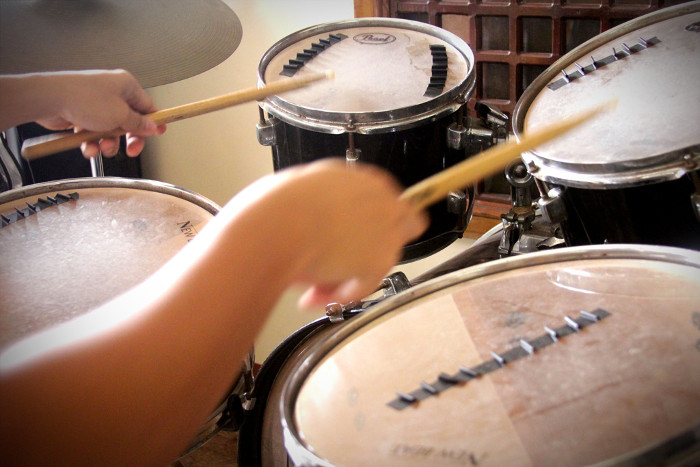Science proves that drummers have more intelligence than people
According to lifehack.org, science has proved that drummers are people who have superior intelligence compared to those who do not play music.
Not only that, the evidence also shows that this intelligence in drum players excels even among those who are prone to music.
The study completed in July 2012 will further analyze this issue.
Participants heard music created by computers and music was created by real drum beats.Music because drummers really make more difference , please listeners better than computer music.
Scientists want to find out if computers can reconstruct small, man-made differences by algorithm. This will "multiply" the rhythm created by the machine. To gather data, a drummer from Ghana was recorded in the 50s of the 20th century. Scientists have placed a metronome and let drums play the beat of the machine.
The results show that sometimes the drummer will deviate a very small span.

The timer and memory for the rhythm does not exist in them.
The experiment showed that, if the drummer played a beat slightly faster than the pacemaker, the next rhythm would likely be playing a bit faster. This deviation lasts about a few minutes.
It should be noted that this difference is very small, perhaps less than the time of a dragonfly's wings. This means that the artist's brain seems to be able to recognize that distortion and continue it as a rhythm until the music ends. They will stretch this rhythm over a period of time instead of stopping and correcting the rhythm of the device.
In short, the artist's brain is capable of counting the time without matching the pacemaker. This shows the ability to separate this task and separate the rhythm created by the empty player. They do not need to stop and restart from the beginning as people who do not have a sense of rhythm. This ability to count time and gently adjust means they have a kind of intelligence that others don't have.
Large range correlations also appear in more complex rhythms, in singing, pop and classical music. The things created by hands, feet or vocals all have minor deviations from the general rhythm. This means there are minor deviations in the song. These errors actually attract listeners in a way that scientists can reproduce on computers.
So what about people who don't feel the rhythm? It is no wonder that the wide correlation that drummers and artists use to attract listeners does not appear in people who do not have a sense of rhythm. The timer and memory for the rhythm does not exist in them. It also means that the accuracy of drummers and artists in general is just a distant dream for those who feel a poor rhythm.
Scientists are trying to find the rules of mathematics that auto artists get when they create their own rhythm.
- Science proves that smart children are mainly thanks to their mothers
- Superhuman intelligence is a disaster for people?
- Science proves that smart people usually live longer than usual?
- Science explains the most intelligent age of people
- Research proves that lazy people are often smarter
- Intelligence in the perspective of science
- What is Artificial Intelligence? What is AI (artificial intelligence)?
- 4 arguments for lazy people have been proved by science
- Science proves: Personality is the key to success, not wisdom
- There are 8 types of intelligence and everyone owns at least 2 types
- Science says that 14 parts of the body will reveal your intelligence
- There are 7 different forms of intellect, what kind of intelligence are you?
 Green tea cleans teeth better than mouthwash?
Green tea cleans teeth better than mouthwash? Death kiss: This is why you should not let anyone kiss your baby's lips
Death kiss: This is why you should not let anyone kiss your baby's lips What is salmonellosis?
What is salmonellosis? Caution should be exercised when using aloe vera through eating and drinking
Caution should be exercised when using aloe vera through eating and drinking